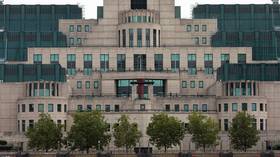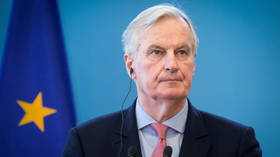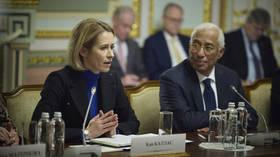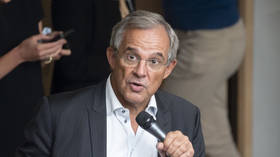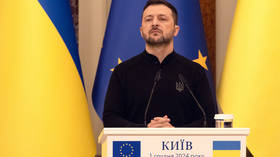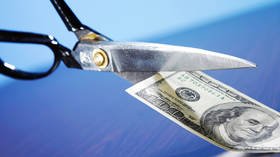Coronavirus emergency plan could cut Russia’s economic growth
Paid holidays announced by the Russian government to prevent the spread of Covid-19 will come at the expense of economic growth, but support for struggling businesses may offset the negative effects, analysts believe.
On Wednesday, Russian President Vladimir Putin addressed the nation to roll out emergency policies aimed at battling the deadly virus and its impact on the economy. According to the plan, most Russians will get a week of paid leave, except those working in the medical, pharmaceutical, and banking sectors, as well as in government bodies, essential stores, and transportation.
“The ballpark figure is one fifty-second of annual GDP,” Sergey Kopylov, a junior partner at consulting company BSC, said in an interview with RT, adding that he expects the impact to be smaller as not all the production facilities will have to be shut down.
Also on rt.com Russia's gold & near-zero debt give it best chance of thriving in post-coronavirus apocalypse – Max KeiserThe nationwide holidays and closures for one week could cost around two percent of GDP. In real terms, the losses may amount to over US$28 billion, judging by last year’s results, when the nation’s GDP stood at around US$1.41 trillion (109.3 trillion rubles).
“It will be rather expensive. I think we can forget about economic growth this year,” Kopylov said.
Prior to the coronavirus outbreak and the oil price crash, the Russian economy was projected to grow 1.9 percent in 2020. The Russian government is now bracing for a budget deficit and expects annual GDP growth to miss the target.
Earlier this month, both Moody’s and Fitch rating agencies cut Russia’s economic growth forecast, citing turbulence in oil markets, global slowdown, and the impact of the pandemic. Both agencies expect that GDP growth will be one percent lower than they had previously said, with Moody’s estimating it at half a percent this year, while Fitch projects one-percent growth.
While some economists warn that Russia will enter (or already has entered) a recession amid the coronavirus outbreak, others say that many global powers are facing the same challenges as the pandemic has hit global trade.
“Recession is inevitable not only in Russia, but also in the United States and in other countries in Europe,” said Alexander Kalinin, the president of OPORA RUSSIA (All-Russian Non-Governmental Organization of Small and Medium-sized Business). He added that as part of the global market, Russia has vast exports to those regions and the economic troubles there will have an impact.
Russian exports have already felt the bite of the global slowdown and the pandemic has made it worse, according to Kopylov. The strategist warned that the decline in exports could be another blow to economic growth and the nation’s revenues, eventually resulting in the devaluation of the ruble and spurring inflation.
Also on rt.com Recession is here! World economy facing great uncertainty ahead, S&P saysOn the bright side, the plan includes a support package for businesses, including tax breaks and protection from bankruptcy. Small and medium-sized enterprises (SMEs) will be spared from paying taxes, except for VAT, for the next six months, while micro businesses will be granted a deferral on their contributions to social insurance funds. Bank loans held by struggling SMEs and micro businesses will also be deferred for the next six months.
“The measures the president announced are absolutely suitable, right and can cushion all this negative [effect],” Kopylov told RT. However, everything will now depend on how the plan is implemented by the government, he added.
For more stories on economy & finance visit RT's business section



